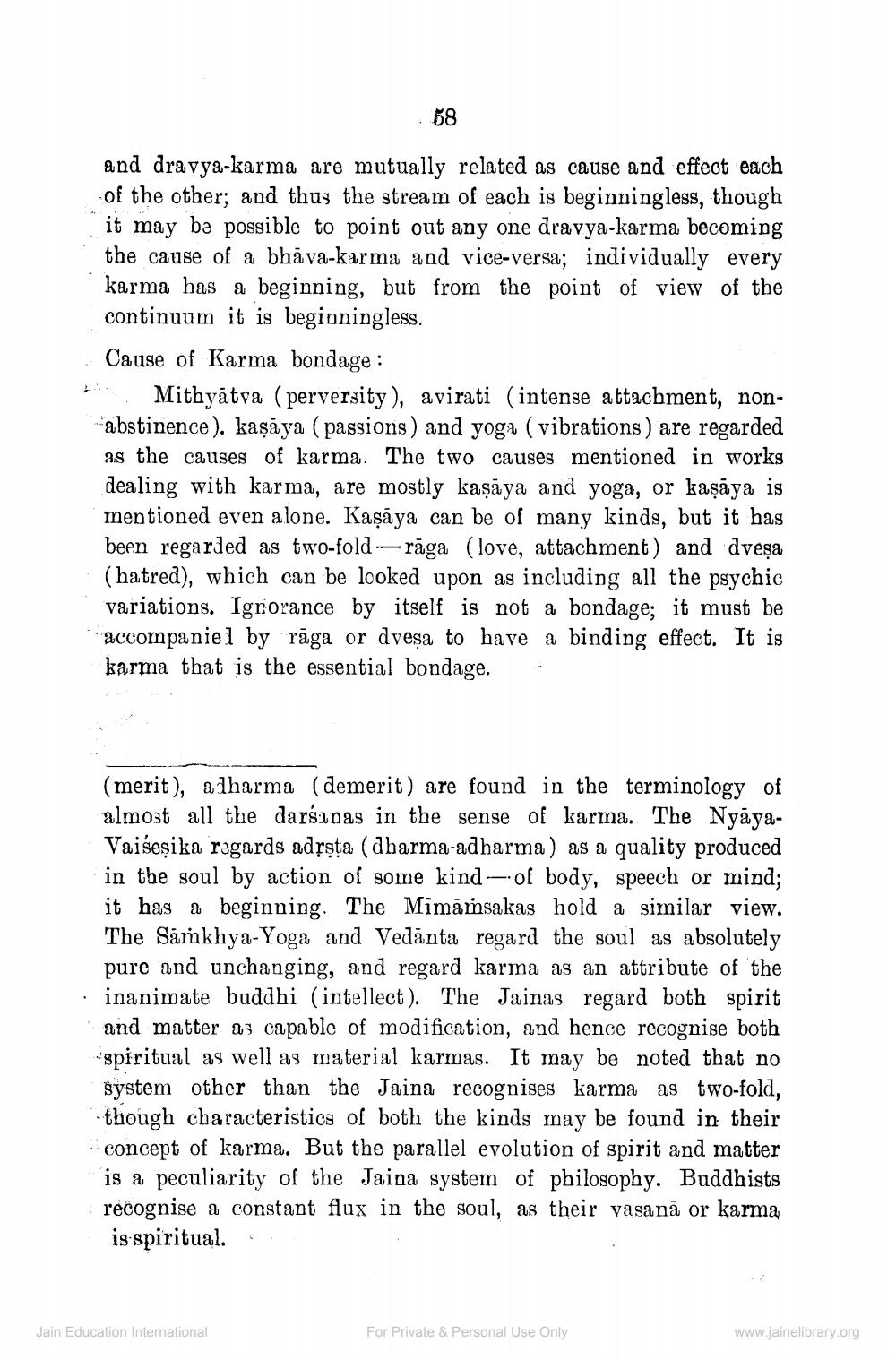________________
58
and dra vya-karma are mutually related as cause and effect each of the other; and thus the stream of each is beginningless, though it may be possible to point out any one dravya-karma becoming the cause of a bhāva-karma and vice-versa; individually every karma has a beginning, but from the point of view of the continuum it is beginningless.
Cause of Karma bondage : tha Mithyātva (perversity), avirati (intense attachment, non
abstinence). kaşāya (passions) and yoga (vibrations) are regarded as the causes of karma. The two causes mentioned in works dealing with karma, are mostly kaşāya and yoga, or kaşāya is mentioned even alone. Kaşāya can be of many kinds, but it has been regarded as two-fold - rāga (love, attachment) and dveşa (hatred), which can be looked upon as including all the psychic variations. Ignorance by itself is not a bondage; it must be accompaniel by rāga or dveșa to have a binding effect. It is karma that is the essential bondage.
(merit), a dharma (demerit) are found in the terminology of almost all the darśanas in the sense of karma. The NyāyaVaišeșika regards adssta (dharma-adharma) as a quality produced in the soul by action of some kind - of body, speech or mind; it has a beginning. The Mimārsakas hold a similar view. The Sámkhya-Yoga and Vedānta regard the soul as absolutely pure and unchanging, and regard karma as an attribute of the · inanimate buddhi (intellect). The Jainas regard both spirit
and matter a3 capable of modification, and hence recognise both spiritual as well as material karmas. It may be noted that no System other than the Jaina recognises karma as two-fold, though characteristics of both the kinds may be found in their concept of karma. But the parallel evolution of spirit and matter is a peculiarity of the Jaina system of philosophy. Buddhists recognise a constant flux in the soul, as their vāsanā or karma is spiritual.
Jain Education International
For Private & Personal Use Only
www.jainelibrary.org




